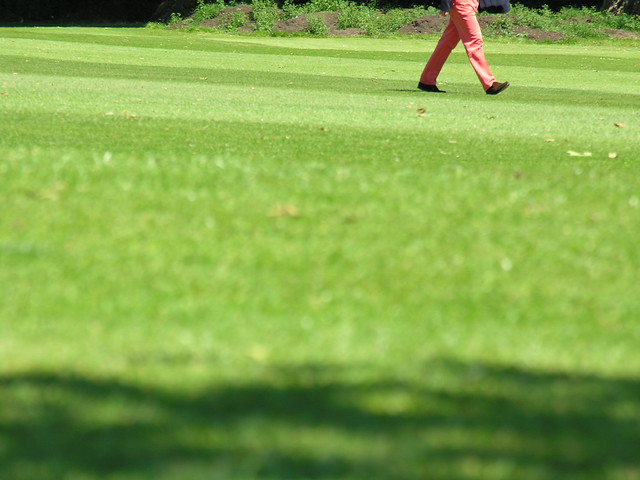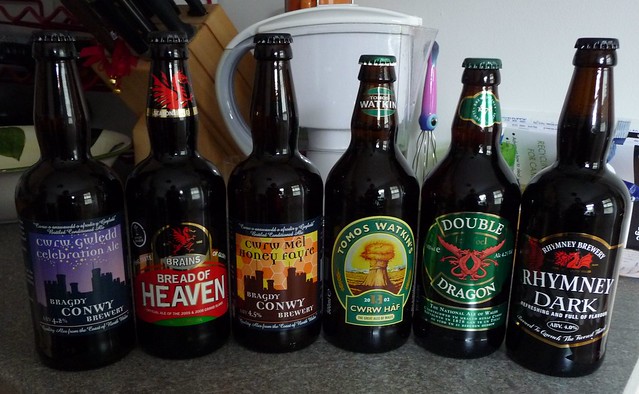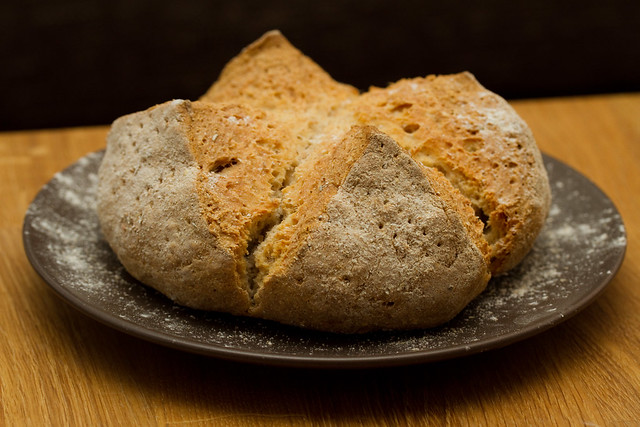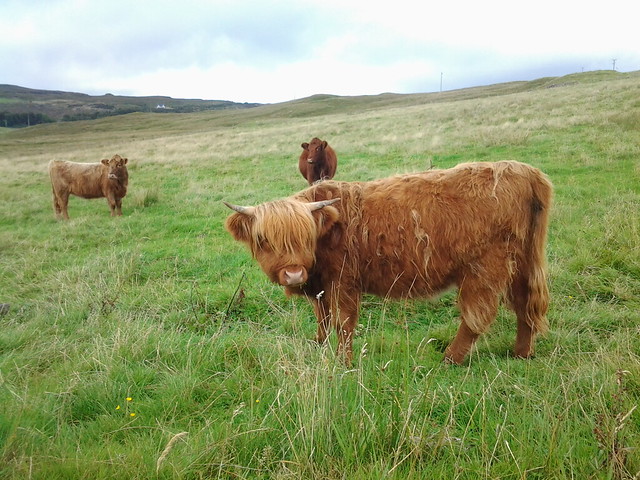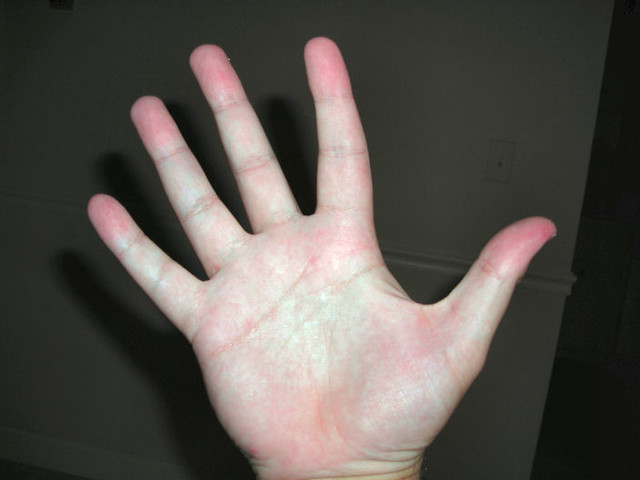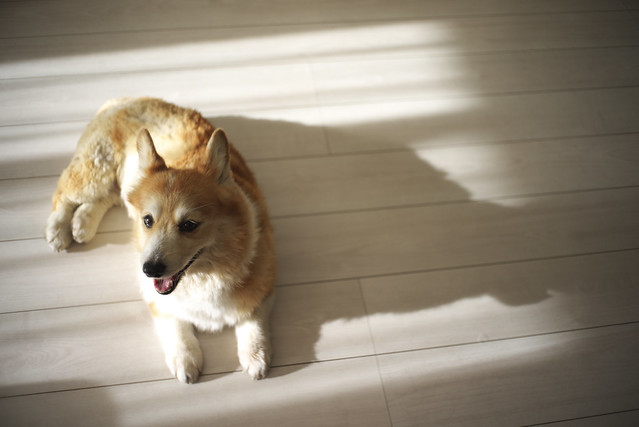Words for trousers, socks, sites and related words in Celtic languages.
| Proto-Celtic | *ɸlātrom = flat position |
|---|---|
| Old Irish (Goídelc) | láthar [ˈl͈aːθar] = arrangement, disposition láthraid [ˈl͈aːθrɨðʲ] = to arrange, to dispose |
| Irish (Gaeilge) | láthair [ˈl̪ˠɑːhəɾʲ/ˈl̪ˠæhəɾʲ] = place, spot, site, location; presence as láthair = absent faoi láthair = at present i láthair = present láithreach = ruined site, ruin, trace; imprint; present (tense) láithreacht = presence láithreán = piece of ground, place, site; ruined, vacated site; floor, space; set láithreog = small site; trace, mark; small well-built girl láithrigh = to present oneself, appear |
| Scottish Gaelic (Gàidhlig) | làthair [l̪ˠaː.ɪrʲ] = presence, venue an làthair = present, here, in attendance; extant; in existence neo-làthair = absent neo-làthaireachd = absence làthaireach = present làthaireachd = presence; attendance; atmosphere uile-làthaireachd = omnipresence |
| Manx (Gaelg) | laaragh = centric(al), stage, centre, venue, site emshir-laaragh = present tense neuaaragh, assaaragh = absent ooilley-laaragh = ubiquitous |
| Proto-Brythonic | *lọdr = leg covering |
| Middle Welsh (Kymraec) | llauder, llahudyr, llawdyr, llodr = trousers, breeches, hose |
| Welsh (Cymraeg) | llawdr [ˈɬaːu̯dr] = trousers, breeches, hose llawdrog, llodrog = wearing breeches, bedraggled llawdrwisg = breeches llawdrwr, llodrydd, llodrwr = breeches-maker llaesu llawdr = to undo one’s trousers (to ease oneself) |
| Old Cornish | loder = sock |
| Cornish (Kernewek) | lodrik = sock |
| Middle Breton | louzr = sock |
| Breton (Brezhoneg) | loer = sock, (trouser) leg |
Etymology: from the Proto-Indo-European *pleh₂- (flat) [source].
From the same PIE root we also get Celtic words for hand, from the Proto-Celtic *ɸlāmā (palm, hand) [source], which was borrowed from Old Irish into Old Norse and became lámur (flipper, paw, left hand) in Faroese [source].
Words for floor and ground in Celtic languages also come from the same PIE root, via the Proto-Celtic *ɸlārom (floor) [source].
English words from the same PIE root include floor, palm, piano, plain, plan and plane, and also Poland [source].
| Irish (Gaeilge) | bríste [ˈbʲɾʲiːʃtʲə] = trousers; breeching (of harness); roe (of pollock) brístín = panties, knickers fobhríste = underpants forbhríste = overalls |
|---|---|
| Scottish Gaelic (Gàidhlig) | briogais [brʲigɪʃ] = trousers, breeches briogais-ghlùine = shorts, plus fours briogais-ghoirid, briogais-bheag = shorts briogais-shnàimh = swimming trunks |
| Manx (Gaelg) | breeçhyn = breeches breeçhyn glioonagh = knee breeches breeçhyn markee = riding breeches |
| Welsh (Cymraeg) | brits(h) = breeches britis pen-(g)lin = knee-breeches |
| Breton (Brezhoneg) | bragez = knickers, panties, breeches bragez vihan = underpants, briefs, pants, panties |
Etymology: from the English breeches, from the Middle English brech(e), brek (breeches), from the Old English brēċ (underpants), from the Proto-Germanic *brōkiz, from *brōks (leggings, pants, trousers; rear end, rump) the Proto-Indo-European *bʰreg- (to break, crack, split) [source].
| Middle Irish (Gaoidhealg) | triubhas = closs-fitting shorts |
|---|---|
| Irish (Gaeilge) | triús = (pair of) trousers, trews |
| Scottish Gaelic (Gàidhlig) | triubhas [tru.əs] = trousers, trews |
| Manx (Gaelg) | troosyn = slacks, pants, trews, tights, trouser, knickers troosyn çhionn = pantaloons troosyn giarey = short trousers troosyn markee = jodhpurs |
| Welsh (Cymraeg) | trywsus, trywser, trowsus [ˈtrou̯sɨ̞s/ˈtrou̯sɪs] = trousers, breeches, knickers, panties trywsus bach = shorts, short trouserse, knickerbockers |
| Breton (Brezhoneg) | bragez = knickers, panties, breeches bragez vihan = underpants, briefs, pants, panties bragoù = trousers |
Etymology (Welsh): from the English trousers, from the Middle Irish triubhas (trousers, trews) of uncertain origin [source]. The English word trews (trousers, especially if close fitting and tartan) was borrowed from Scottish Gaelic [source].
| Cornish (Kernewek) | lavrek = trousers lavrek byghan = briefs, underpants lavrek jin = jeans lavrek kott = short |
|---|---|
| Breton (Brezhoneg) | lavreg = trousers |
Etymology unknown
Words marked with a * are reconstructions.
Sources: Wiktionary, Am Faclair Beag, Online Manx Dictionary, Teanglann.ie, eDIL – Electronic Dictionary of the Irish Language, logainm.ie, In Dúil Bélrai English – Old Irish glossary, Geiriadur Prifysgol Cymru, Gerlyver Kernewek, Dictionaire Favereau, TermOfis, English – ProtoCeltic WordList (PDF), Etymological Dictionary Of Proto Celtic
